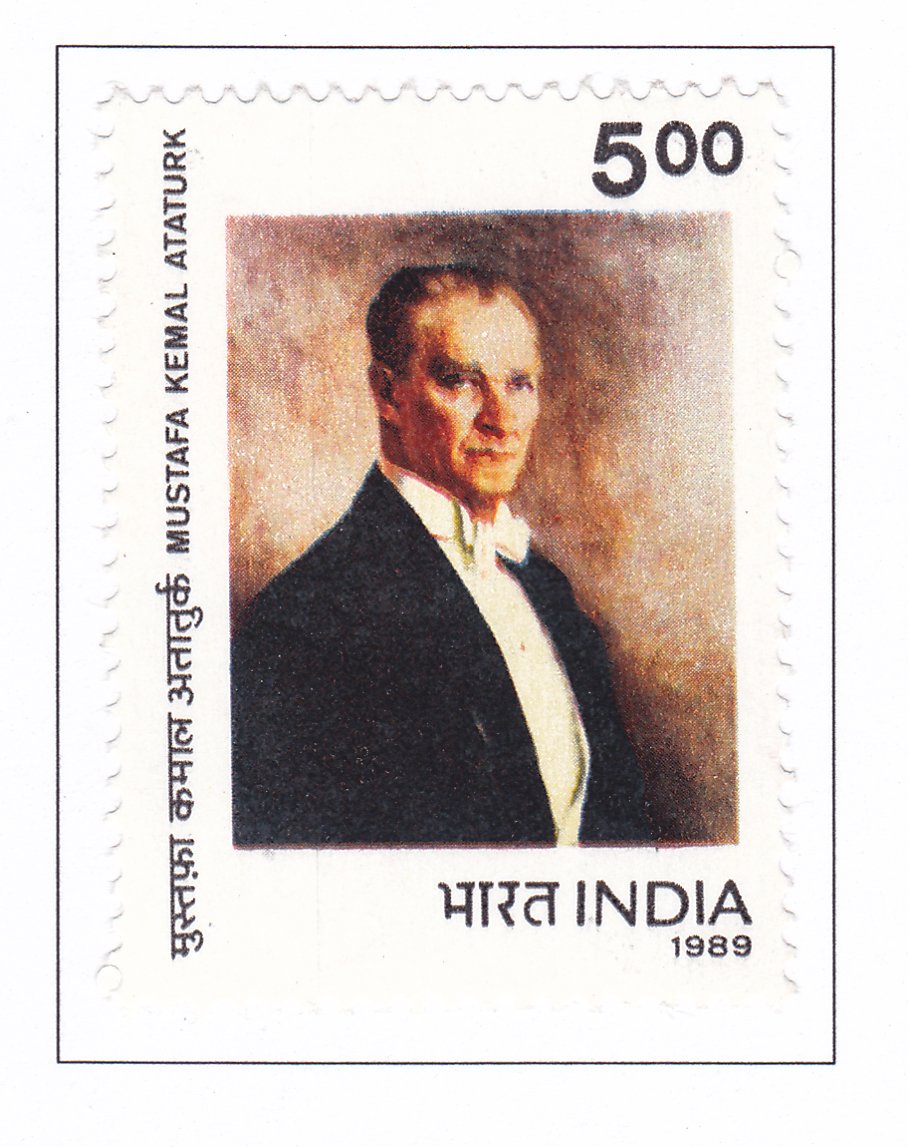Mustafa Kemal Ataturk (1881-1938)

Technical Data
| Date of Issue | August 30, 1989 |
|---|---|
| Denomination | Rs. 5 |
| Quantity | 5,000,000 |
| Perforation | comb 13 x 13½ |
| Printer | Security Printing Press, Nashik |
| Watermark | No Watermark |
| Colors | Multicolor |
| Catalog Codes |
Michel IN 1229 Stamp Number IN 1288 Yvert et Tellier IN 1031 Stanley Gibbons IN 1380 |
| Themes | Anniversaries and Jubilees | Famous people | Heads of State | Men | Politicians |
Commemorative Stamp Set: Mustafa Kemal Ataturk(1881-1938)
Design Elements:
The commemorative stamp set could feature portraits of Ataturk at different stages of his life, scenes depicting key moments such as the Turkish War of National Liberation, the abolition of the Sultanate, and the proclamation of the Republic. It could also include symbols of modern Turkey, the Turkish flag, and representations of his reforms.
Cultural and Historical Significance:
Mustafa Kemal Ataturk, born into a modest family, became the first President of the Republic of Turkey and is celebrated for his leadership in modernizing the nation. He initiated extensive reforms that included abolishing the Sultanate and the Caliphate, adopting secular laws, introducing the Latin alphabet, and advancing women’s rights.
Usage:
The stamp set serves to honor Ataturk’s legacy as a visionary statesman and military leader who led Turkey through profound social, political, and educational reforms aimed at modernization and national independence.
Importance of the Commemorative Stamp Set:
This stamp set is important for commemorating Ataturk’s contributions to Turkey’s development as a modern nation-state. It educates about his principles of secularism, democracy, and peace, which continue to influence Turkey’s identity and global perception.
Example of the Stamp Design:
One stamp design could depict Ataturk addressing a gathering, symbolizing his role as a charismatic leader. Another might show the Turkish flag alongside symbols of education and modernization, reflecting his emphasis on scientific education and progress.
Significance:
The commemorative stamp set symbolizes Ataturk’s enduring legacy as the father of modern Turkey, highlighting his efforts in transforming Turkey into a secular and progressive state. It underscores his commitment to peace, education, and national sovereignty, resonating with global admirers of his leadership and reforms.
